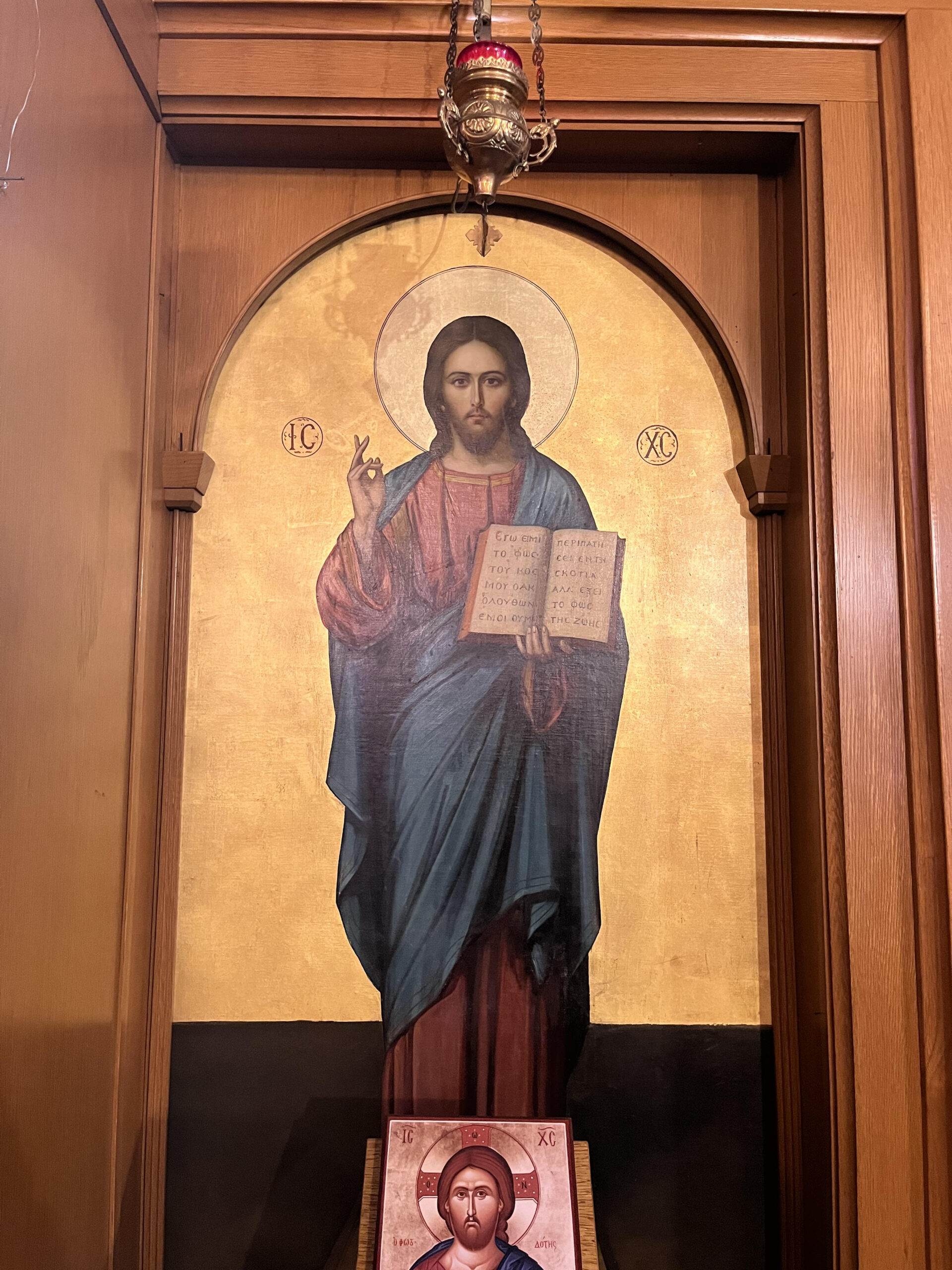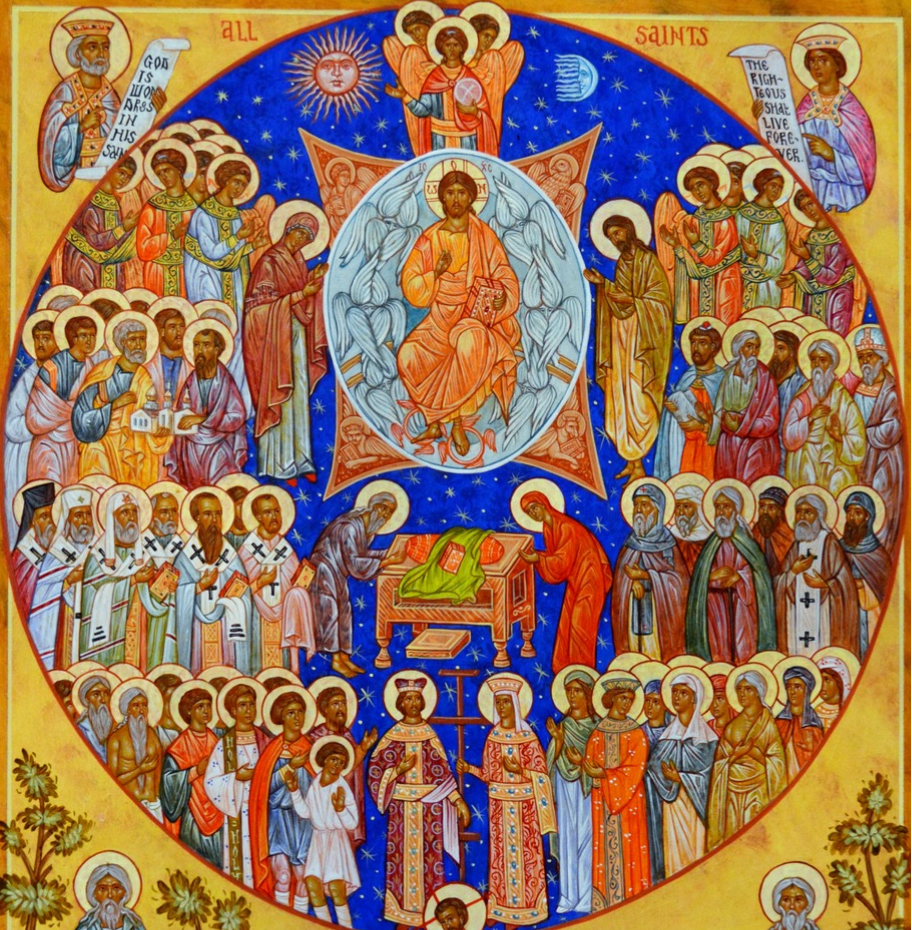Timothy, my son, the saying is sure and worth of full acceptance, that Christ Jesus came into the world to save sinners. And I am the foremost of sinners; but I received mercy for this reason, that in me, as the foremost, Jesus Christ might display His perfect patience for an example to those who were to believe in Him for eternal life. To the King of ages, immortal, invisible, the only God, be honor and glory forever and ever. Amen.
I Timothy 1: 15-17 (Epistle of the 31st Sunday)
This Sunday’s Epistle reading is among the shortest Epistle passages of the year, a mere three verses from I Timothy. Like the well-known verse of John 3:16, I Timothy 1:15 provides a succinct summary of why Jesus Christ came into the world. It was to save sinners. It wasn’t to judge the world. It wasn’t to condemn the world. It wasn’t for political overthrow. It was for spiritual restoration, to bring us back into harmony and unity with God, by taking down the wall that separates us from God, which is our sins.
Do we ever think of ourselves as sinners? Think of all the ways we identify ourselves—man/woman, husband/wife, mother/father, son/daughter, lawyer, doctor, coach, homeowner, even Christian. In our identity, do we ever think of ourselves as sinners? If we identify as sinners, are we motivated to repent of our sins? And if we do not identify as sinners, why not? Is it just something we don’t think about? Are we too ashamed to think about it? Are we too proud to think about it?
When we receive Holy Communion, there are several prayers that we are supposed to offer in preparation for this sacrament. The very first prayer says “I believe, O Lord, and confess, that You are truly the Christ, the Son of the living God, Who did come into the world to save sinners, of whom I am the first.” This prayer is quoted almost directly from I Timothy 1:15. The most basic requirement to be a Christian, and to receive Holy Communion, is faith in God. Certainly good works are part of the equation. There is supposed to be prayer, Scripture reading, and obedience to the commandments. However, the most basic thing, even more basic than these things, is faith. Because a person can read the words of prayer without faith. A person can read the words of Scripture without faith. A person can be nice and still might not have faith.
Faith, as we know, means believing in something we cannot fully comprehend. We can comprehend the message of Christ. It is written very clearly in the Bible. We can comprehend, in part, the majesty of God. We see it in nature, we feel is in the sunlight. However, we cannot fully comprehend the majesty of God, nor can we fully comprehend the mercy of Christ. We can understand mercy when we are merciful to someone else. However, we can’t comprehend the level of mercy needed in order to be merciful to all peoples of all time.
Faith means understanding that God has prepared a better place for us. We cannot fully comprehend what that means, or what that looks like. Yet, it is the major thrust of the Christian life, to prepare for eternal life. We believe that Christ came into the world, to save us from the sins that keep us from Paradise. In order to receive forgiveness, there must be repentance, change, on our part, to renounce the sins we have committed and to do a better job living a more disciplined, Christ-centered life. And in order to do any of this, let alone all of it, we need to have humility. We need to realize that HE is the center, not us. It takes humility to hope for mercy. Because mercy is not something we can demand, or attain, or buy. It is something that God gifts to us. It takes humility to ask God for His mercy, and it takes humility to accept it.
Mixed in with all of this is the “perfect patience” of Christ. (1:16) Thankfully, God is patient with our weaknesses. He bestows mercy on us, when we repent of our sins. And He bestows mercy again on us when we repeat the same sins we have repented of. Without God’s mercy, the cycle of sin and repentance would quickly break down.
We come to God in prayer and with faith, and we approach Holy Communion continually, knowing that we are all going to sin again. What is the point of that? Let me give an example from real life:
At my house, our patio for some reason, slopes towards the house. When we wash off the patio, water flows towards the house rather than away from it. While I’m spraying water one way, the water is creeping back from another way. That’s why I have to aim the nozzle around in a 180 circle constantly to push the dirt and the accumulating water away, even as some of it comes back. Eventually, “I win” and the dirt and water are pushed away. But it takes time, and at points in the process, it looks like I’m going to lose, it looks like the water is going to overwhelm the space. If I don’t wash off the patio periodically, dirt accumulates. If I get overwhelmed by washing the patio, and don’t finish, again, dirt accumulates. The only way to be successful is to keep at it.
Our faith journey is similar. If we don’t take the journey, our souls will never be cleansed of sin. Once we start to take the journey, we will make inroads in many ways, have setbacks in other ways, need to make inroads again, have setbacks again, and the cycle will continue throughout life, until we finally push through to the end, and the reward is a clean soul and a seat in the kingdom of God.
The beginning of the journey is the realization that the “patio” of our souls is stained with sin and that Christ came into the world to help us clean our souls so that we can be with Him and like Him. The cleaning of our souls takes consistency, vigilance and faith. We can only come to the beginning of the journey, to the realization of our need for Christ with humility.
Lord, as a weapon against the Adversary You have given us Your holy Cross. Gripped with fear he trembles unable to endure to look upon its might, because it raises the dead, and death itself it neutralized. For this reason we adore Your three-day burial and rising again. (Third Resurrectional Praise, Matins, Plagal 4th Tone, Trans. by Fr. Seraphim Dedes)
Keep washing the patio of your soul, even when you have a setback!

